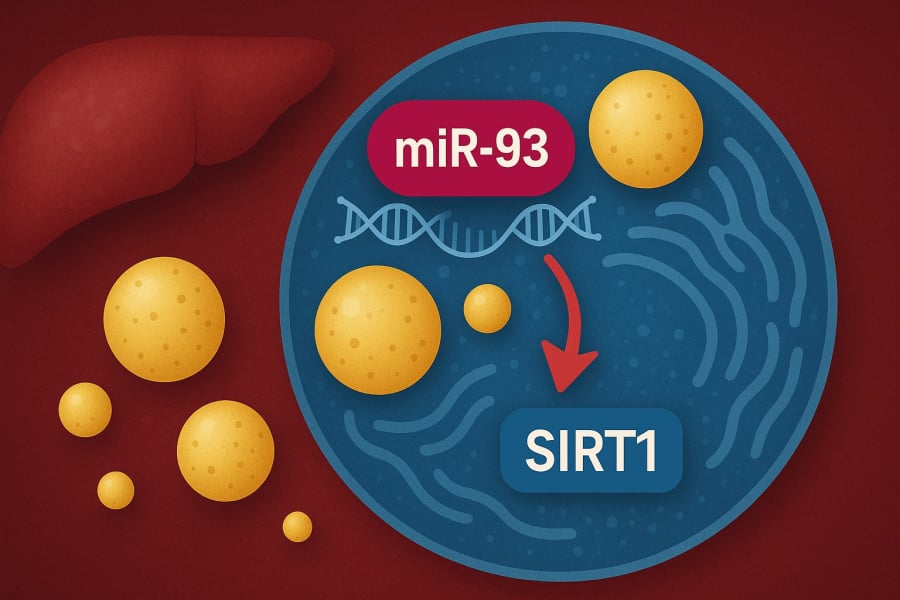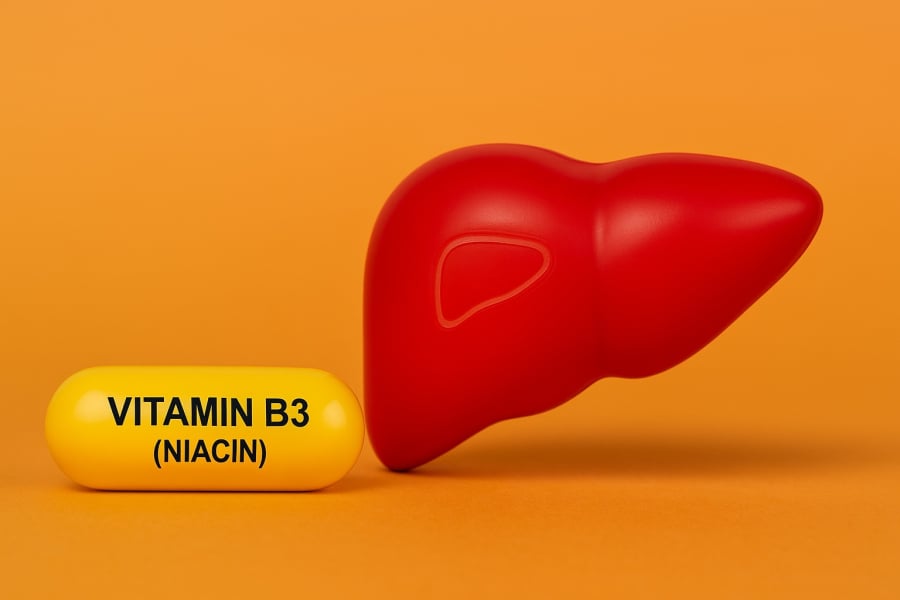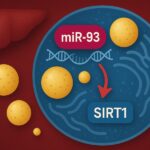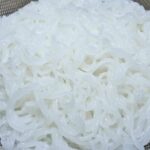## A Breakthrough Discovery from the Lab
Non-Alcoholic Fatty Liver Disease: Uncovering a Silent Killer
Non-alcoholic fatty liver disease, or MAFLD for short, has long been dubbed a “silent killer.” The disease progresses insidiously without obvious symptoms, but its consequences can be severe: from liver inflammation and fibrosis to liver cancer.
While modern medicine is still scrambling to find a definitive treatment, a recent study from the Ulsan National Institute of Science and Technology (UNIST) in South Korea has opened a door of hope. And surprisingly, the potential key lies in vitamin B3 (niacin), a common dietary supplement.

From Dangerous Genes to the “Cure” Called Niacin
Scientists discovered that in MAFLD patients—as well as in a mouse model of the disease—there was an abnormal increase in a genetic factor called miR-93. This factor promotes fat accumulation in the liver and causes inflammation and fibrosis by inhibiting the SIRT1 gene, which plays a crucial role in liver fat metabolism.
When the researchers used gene-editing techniques to inhibit miR-93, they observed a significant reduction in liver fat, improved liver function, and enhanced insulin sensitivity. However, the most surprising finding came from a screen of 150 FDA-approved drugs.
Vitamin B3, also known as niacin, was identified as the most effective inhibitor of miR-93. Mice treated with niacin showed a significant decrease in miR-93 levels in the liver, and the SIRT1 gene was reactivated, restoring liver fat metabolism.

New Hope for Millions
Fortunately, vitamin B3 has long been used safely to treat dyslipidemia and is readily available over the counter as a dietary supplement. This discovery not only offers a new direction in treating MAFLD but also has the potential to accelerate its clinical application since niacin has already cleared safety approval hurdles.
According to the research team, these findings not only elucidate the biological mechanism behind fatty liver disease but also reveal the potential application of a familiar vitamin in treatment—something that few would have anticipated, despite its previous widespread use in clinical settings (Medical Express).
“Fatty liver disease usually doesn’t cause symptoms, so it can go unnoticed,” says ThS.BS Nguyen Thi Thuy Trang from the Ho Chi Minh City Nutrition Center. “However, if left untreated, it can progress to liver inflammation, fibrosis, and cancer” (ZingNews).
A Word of Caution: Consult a Doctor Before Taking Vitamin Supplements
While niacin shows great potential in treating fatty liver disease, it should not be taken in high doses without medical supervision, especially for those with underlying conditions such as diabetes, gout, or chronic liver disease.
Doctor Nguyen Trong Hung from the National Institute of Nutrition warns that vitamin B3 should not be used arbitrarily and that specific dosage instructions are necessary to ensure patient safety. “Overdosing can lead to side effects such as facial flushing, skin redness, and even liver damage—an ironic twist for those seeking to heal their livers.”
Take Action Starting Today
There’s no denying that the discovery of vitamin B3’s potential shines a new light on treating fatty liver disease. However, prevention is still better than cure.
Unveiling the 5 Familiar Food Groups That Harm Your Liver: A Surprising Revelation
The liver is a vital organ that is susceptible to damage from various familiar foods we consume. This introduction paragraph aims to intrigue readers by highlighting the potential dangers lurking in their diets and offering a solution to protect their livers. It teases an informative article that will reveal the top five harmful food groups and provide effective strategies to safeguard liver health.



































